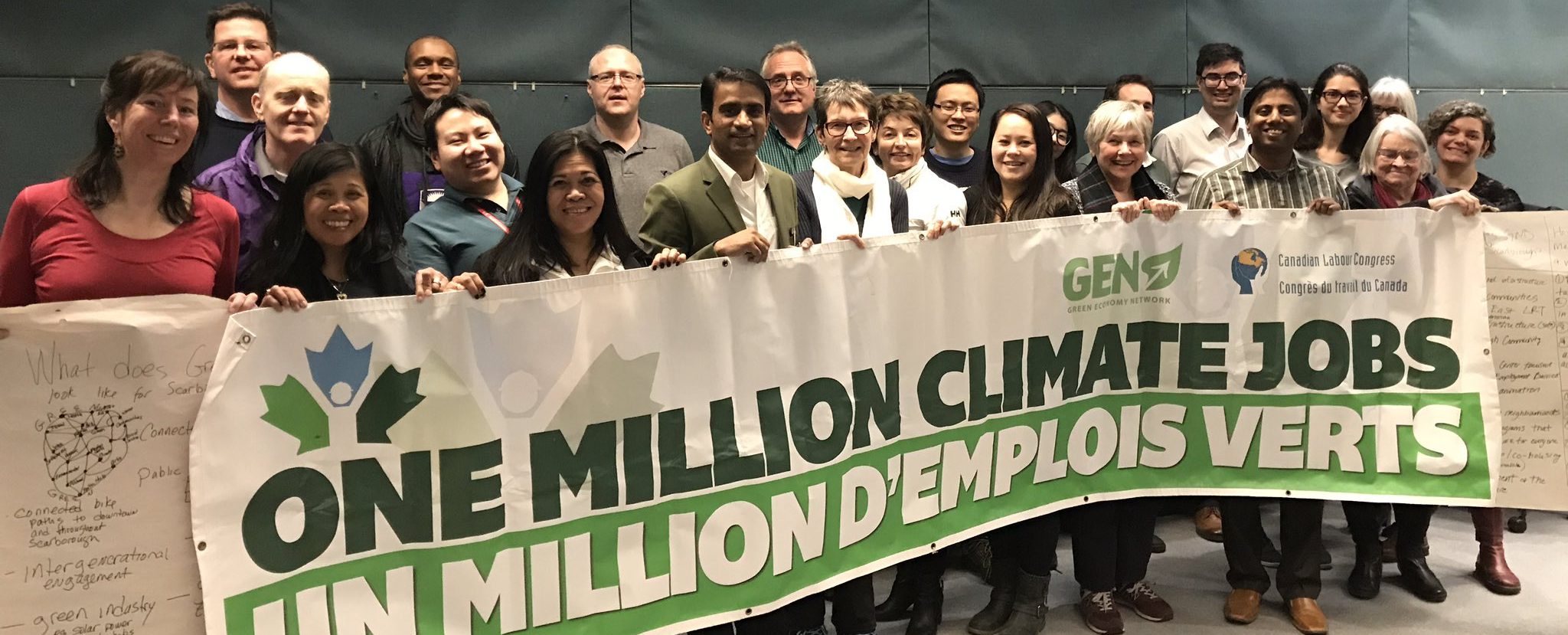Making the Shift to a Green Economy
The warnings by the United Nations’ Intergovernmental Panel on Climate Change are clear: the current level of greenhouse gas emissions is already consuming the entire global carbon budget.
Market forces on their own are not able to provide the kind of transition that will prevent catastrophic climate change. Governments must step up to the plate by working and providing leadership for the common good and public interest. Canada must implement an ambitious climate policy to achieve net-zero carbon emissions.
A significant industrial transformation will be required to move to a net-zero carbon economy. Such a change will eliminate or transform many existing jobs, which could undermine a much-needed social consensus in Canada for a way forward.
To address this, we must implement a de-carbonization strategy that puts workers first. The strategy must embody social support, re-employment, and compensation measures, and be devised with the participation of workers and their representatives.
The Government of Canada has declared its support on the world stage for a just transition. This, along with Canada’s Paris Agreement pledge, commits the country to reducing carbon emissions by 40-45% below 2005 levels by 2030 while simultaneously tackling poverty and social inequality, as well as supporting workers who will be affected by the shift to a net-zero economy by 2050.
However, by the government’s own admission, it is currently not on-track it meet its emissions targets. Even with the passing of the federal Emissions Reduction Plan in 2022, Canada remains ill-prepared to reach its emission targets by 2030. Moreover, the government has not committed enough resources to create new, good jobs in the wake of inevitable labour market disruptions that will occur if the needed steps to reduce carbon emissions are taken. Now is the time to enact a bold industrial strategy that Canada does not miss this generation-defining chance.


